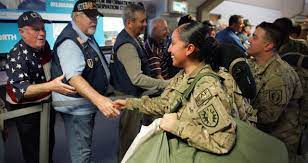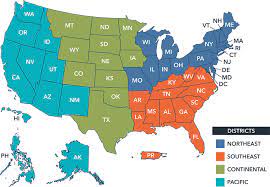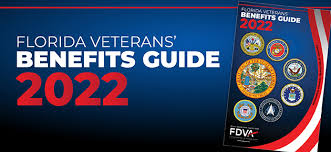Military veterans make up a large portion of the population in many countries around the world. They are people who have served in the armed forces and are now retired or discharged from active duty. Veterans have served their country with honor and distinction, and they deserve respect and recognition for their service.
Veterans have made significant sacrifices for their country, both physically and emotionally. Many have faced dangers on the battlefield, suffered injuries, or even lost their lives in service to their nation. Those who return home often suffer from post-traumatic stress disorder (PTSD), depression, or other mental health issues due to their experiences in combat.
Veterans often face challenges reintegrating into civilian life after leaving the military. They may struggle to find employment, as many employers do not understand the skills that veterans can bring to a job. Additionally, veterans may suffer from social isolation due to difficulty connecting with peers outside of their military experience.
Fortunately, there are organizations dedicated to helping veterans transition back into civilian life. These organizations provide resources such as job training programs, financial assistance, mental health services, and more. Additionally, there are numerous charities that provide assistance to veterans in need of support.
It is important that we recognize the contributions of our military veterans and show them our appreciation for all they have done for our country. We should honor them by supporting organizations that help them adjust back to civilian life and offering assistance wherever possible. By doing so, we can ensure that our heroes receive the recognition they deserve for their service and sacrifice.
Nine Tips for Military Veterans
- Get to know other veterans in your community and find support networks.
- Take advantage of the benefits available to you, including education assistance and health care services.
- Be proactive about seeking out mental health resources if needed, such as counseling or therapy.
- Make sure you are aware of all the legal resources available to veterans, such as free legal advice for veterans from organizations like American Bar Association’s Military Pro Bono Project
- Utilize job search websites specifically designed for veterans, such as Hire Heroes USA or RecruitMilitary
- Stay up-to-date on changes in veteran policies and programs that could affect you and your family
- Participate in veteran events or activities that can help build a sense of camaraderie with other veterans
- Find ways to give back to your community by volunteering at veteran organizations or participating in civic engagement initiatives
- Use online tools like VA’s eBenefits portal to access information about benefits and services available to you
Get to know other veterans in your community and find support networks.
Military veterans have gone through a lot of difficult experiences and often struggle to find the right support networks when they return home. It can be especially difficult for those who have served in a warzone or experienced trauma while in the service. Fortunately, there are ways to get help and support from other veterans in your community.
One way to find other veterans is by joining local veteran organizations or attending events specifically geared towards veterans. These events are often held by veteran service organizations or even just local groups of veterans who want to provide support and camaraderie for each other. By attending these events, you can meet other veterans who understand what you’ve been through and can provide support and advice.
Another way to find support is through online forums specifically for veterans. There are many online communities dedicated to helping military members transition back into civilian life and providing guidance on how to cope with PTSD, depression, anxiety, and other issues that many veterans face. These online communities are a great resource for connecting with others who have gone through similar experiences as you and can provide invaluable advice on how to cope with the challenges of returning home.
Finally, there are also many veteran-specific programs available that offer counseling services, job training, educational opportunities, and more. These programs are designed to help military members adjust back into civilian life and provide them with the resources they need to succeed after their service ends.
No matter what your situation is, it’s important to remember that you don’t have to go through it alone. Getting connected with other veterans in your community can be an invaluable resource for finding support networks and getting the help you need after serving in the military.
Take advantage of the benefits available to you, including education assistance and health care services.
Military veterans have served their country proudly and deserve to receive the benefits they are entitled to. Fortunately, there are a number of programs and services available to help them transition back into civilian life.
One of the most important benefits for veterans is access to educational assistance. The GI Bill is one of the most well-known programs, providing financial aid for college tuition and fees, as well as housing and book costs. There are also other scholarships, grants, and loan repayment programs available that can make higher education more accessible for veterans.
In addition to educational assistance, military veterans can also take advantage of health care services provided through the Veterans Health Administration (VHA). VHA provides a variety of services including primary care, mental health counseling, physical therapy, and more. The VHA also offers specialized care for certain conditions such as traumatic brain injury and post-traumatic stress disorder (PTSD).
It is important for military veterans to understand all the benefits available to them so they can take full advantage of them. Education assistance and health care services can help make transitioning back into civilian life easier and more successful.
Be proactive about seeking out mental health resources if needed, such as counseling or therapy.
Military veterans often face unique challenges when transitioning back to civilian life. In addition to the physical and emotional toll of service, many veterans also struggle with mental health issues such as depression, anxiety, and post-traumatic stress disorder (PTSD). To help ensure that veterans receive the care they need, it is important for them to be proactive about seeking out mental health resources if needed.
Counseling and therapy can be invaluable in helping veterans cope with their mental health issues. A qualified therapist can provide a safe space for veterans to talk about their experiences and feelings without fear of judgement or stigma. Additionally, counseling and therapy can help veterans develop strategies for managing their symptoms, as well as providing support and guidance throughout the process.
Veterans should also consider taking advantage of other resources available to them. Many organizations provide free or low-cost services such as peer support groups, crisis hotlines, or online therapy programs. Additionally, local veteran centers may offer specialized services tailored specifically for those who have served in the military.
By being proactive about seeking out mental health resources when needed, military veterans can take the first step towards managing their symptoms and improving their overall well-being. With the right support system in place, veterans can begin to heal from the trauma of service and build a healthier future for themselves.
Make sure you are aware of all the legal resources available to veterans, such as free legal advice for veterans from organizations like American Bar Association’s Military Pro Bono Project
For veterans, accessing legal resources can be a challenge. Fortunately, there are organizations that offer free legal advice for veterans. The American Bar Association’s Military Pro Bono Project is one such organization.
The Military Pro Bono Project provides free legal services to veterans in need of assistance with civil matters, including family law, bankruptcy, housing issues, and more. The organization focuses on providing assistance to those who have served in the military and their families.
The Military Pro Bono Project works with local attorneys to provide free legal assistance to veterans and their families. The organization also provides resources such as educational materials and referral services to help veterans navigate the legal system.
In addition to the Military Pro Bono Project, there are other organizations that provide free or low-cost legal services for veterans. These include the Veterans Legal Services Clinic at Yale Law School and the National Veterans Legal Services Program (NVLSP).
It is important for veterans to be aware of all the legal resources available to them. Knowing where to turn for help can make a big difference in navigating the complex legal system. By taking advantage of these resources, veterans can ensure that their rights are protected and that they receive the assistance they need.
Utilize job search websites specifically designed for veterans, such as Hire Heroes USA or RecruitMilitary
As a veteran of the military, finding a job after leaving the service can be a daunting task. Fortunately, there are job search websites specifically designed for veterans that can make the process easier.
Hire Heroes USA is one such website, providing veterans with career coaching and resume building assistance to help them stand out in the job market. It also offers resources like networking opportunities and job fairs to give veterans an edge in their search.
RecruitMilitary is another great resource for veterans looking for employment. This website helps connect veterans with employers who are specifically looking to hire former service members. It also provides access to training and education programs to help veterans gain additional skills and qualifications that are valuable in the job market.
Using these websites can be an invaluable tool for military veterans looking to transition into civilian life. With their assistance, veterans can find meaningful employment that will help them make a successful transition out of the service and into a new career.
Stay up-to-date on changes in veteran policies and programs that could affect you and your family
As a military veteran, it is important to stay up-to-date on changes in veteran policies and programs that could affect you and your family. The Department of Veterans Affairs (VA) is constantly making changes to its policies and programs, which can mean new benefits or opportunities for veterans. It is important to stay informed so that you don’t miss out on any of these changes.
One way to stay informed is to follow the VA on social media. The VA has accounts on Facebook, Twitter, and YouTube, where they post updates about new policies and programs. You can also sign up for their email newsletter to get the latest news straight from the source.
Another way to stay informed is by attending local events or meetings hosted by veterans’ organizations. These organizations are often aware of changes in policy before they are officially announced, so attending these events can be a great way to get ahead of the game.
Finally, it’s important to talk with other veterans who may have experienced similar situations as you. Talking with other veterans can provide valuable insight into how policy changes may affect your family and give you an idea of what steps you should take in order to take advantage of any new benefits or opportunities that may arise from the changes.
Staying up-to-date on veteran policies and programs can be a daunting task, but it’s essential for ensuring that you don’t miss out on any new benefits or opportunities available to military veterans. By following the VA’s social media accounts, attending local events hosted by veterans’ organizations, and talking with other veterans who have gone through similar experiences as you, you can ensure that you are always in the know when it comes to veteran policies and programs.
Participate in veteran events or activities that can help build a sense of camaraderie with other veterans
As a military veteran, it is important to stay connected with other veterans. Participating in veteran events or activities can help build a sense of camaraderie and support among veterans. It can create a sense of belonging and help veterans feel like they are part of something bigger than themselves.
Veteran events or activities can range from attending military reunions to joining veteran organizations. These events provide an opportunity for veterans to connect with each other, share experiences, and learn more about the various services available to them. They also give veterans the chance to network with other veterans who may have similar experiences or interests.
Participating in veteran events or activities can also be beneficial for mental health and well-being. Studies have shown that social interaction and support from fellow veterans can help reduce stress, depression, and anxiety. Additionally, it can provide an outlet for veterans to express their feelings and experiences in a safe environment.
Overall, participating in veteran events or activities is an important way for military veterans to stay connected with each other and build a sense of camaraderie. It can provide emotional support and create an environment where veterans feel comfortable expressing themselves without fear of judgement or criticism.
Find ways to give back to your community by volunteering at veteran organizations or participating in civic engagement initiatives
For many military veterans, transitioning back to civilian life can be a difficult process. Fortunately, there are ways veterans can give back to their community and help other veterans in the process. One such way is to volunteer at veteran organizations or participate in civic engagement initiatives.
Volunteering with veteran organizations allows veterans to use their unique skills and experiences to help other veterans who may be struggling with the transition back into civilian life. From providing emotional support and advice to helping with fundraising efforts, volunteering with veteran organizations can make a huge difference in the lives of other veterans.
Participating in civic engagement initiatives is another great way for veterans to give back to their communities. Whether it’s joining a local government committee or taking part in a community service project, getting involved in civic engagement initiatives can help veterans stay connected with their communities and make a positive impact on society.
Giving back to one’s community is an important part of being a veteran, and there are many ways for veterans to do so. By volunteering at veteran organizations or participating in civic engagement initiatives, military veterans can make a difference in the lives of other veterans and their communities alike.
Use online tools like VA’s eBenefits portal to access information about benefits and services available to you
The U.S. Department of Veterans Affairs (VA) offers a wide range of benefits and services to military veterans, including health care, disability compensation, education and training, home loans, life insurance, and more. But navigating the system can be overwhelming for some veterans. Fortunately, the VA has an online tool that makes it easier for veterans to access information about the benefits and services available to them: the eBenefits portal.
The eBenefits portal is a secure website that allows veterans to access their VA benefits information from any computer with an internet connection. Through the portal, veterans can view their benefit statements; apply for or track disability claims; transfer GI Bill benefits to family members; find out about employment opportunities; search for VA health care facilities; and more.
The eBenefits portal also provides links to helpful resources such as VA forms, publications, and websites. Additionally, veterans can use the portal to manage their personal information such as addresses and phone numbers.
For those who are eligible for VA benefits but have not yet registered on the eBenefits portal, they can do so by visiting www.ebenefits.va.gov and clicking on “Register Now” at the top of the page. Once registered, veterans can log in at any time to access their VA benefits information from anywhere in the world.
Whether you’re a veteran looking for information about available benefits or just need help navigating the system, don’t forget to take advantage of all that the eBenefits portal has to offer!




